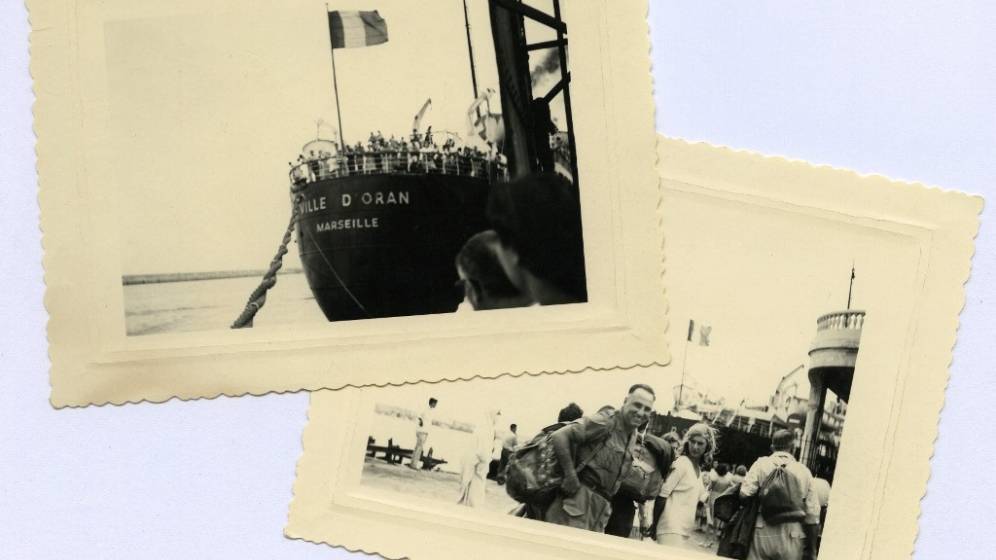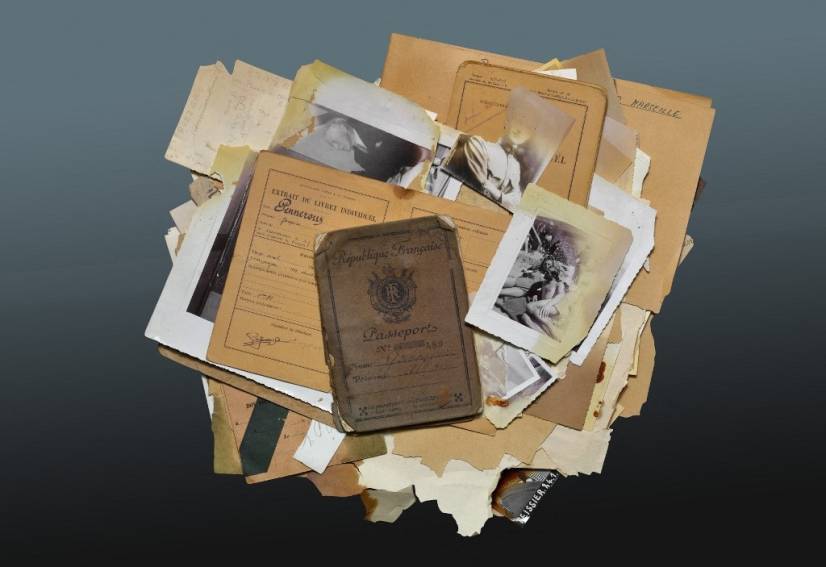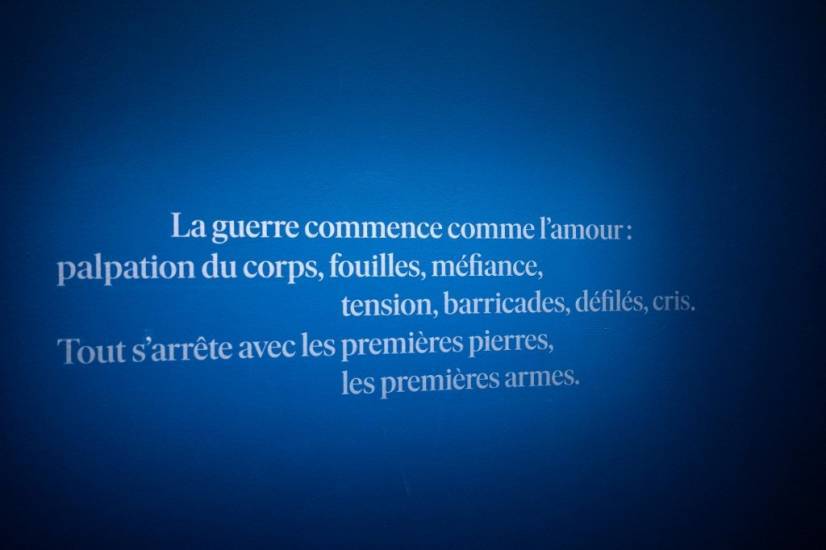Si les ouvertures anticipées d’archives participent pleinement de la politique mémorielle de l’État – celle des dossiers des procès Papon en est une nouvelle preuve –, elles consacrent tout autant le principe de l’accès universel aux archives. Décryptage avec Jean-Charles Bédague, sous-directeur du pilotage, de la communication et de la valorisation des archives au service interministériel des Archives de France au ministère de la Culture.
Algérie, Rwanda, procès Papon… la liste des fonds d’archives ouverts de manière anticipée semble être étroitement liée à la politique mémorielle de l’État ?
Ouvrir les archives, c’est permettre à tous les usagers la consultation anticipée de fonds d’archives qui ne sont normalement pas immédiatement communicables avant que les délais de communicabilité qui pèsent sur eux ne soient échus. Cette faculté a été instituée par la loi de 1979 sur les archives mais n’a pas été mise en œuvre avant la fin des années 1990. Entre 1998 et 2017, la Seconde Guerre mondiale a été quasiment la seule période historique à en bénéficier. À partir de 2019, la connexion entre la politique mémorielle de l’État et les ouvertures d’archives s’est accélérée. Ainsi, quand le Président de la République a confié à une commission de recherche l’étude du rôle de la France au Rwanda entre 1990 et 1994, et notamment lors du génocide des Tutsi, la remise du rapport a été accompagnée d’une ouverture d’archives. Il en est de même pour les différents gestes qui ont été accomplis en faveur de l’apaisement des mémoires de la colonisation et de la guerre d’Algérie.
L’autre changement majeur, c’est que de plus en plus de fonds récents ont été ouverts. Pour autant, ces archives portant sur des périodes proches et sur des événements encore souvent à vif, elles sont ouvertes en tenant compte du fait que dans l’ensemble des fonds relevant des thématiques visées, certains documents présentent ponctuellement une sensibilité trop grande pour être rendus immédiatement accessibles. Quand on a ouvert les archives judiciaires de la Seconde Guerre mondiale, en 2015, on a ainsi exclu les dossiers des procès pour avortement clandestin.
Un point important est toutefois à souligner d’emblée. On présente souvent ces ouvertures comme des « premières », mais en vérité, les documents qu’on ouvre ont généralement déjà été consultés à titre individuel par des historiens ou des familles qui peuvent bénéficier d’une dérogation individuelle.
Comment la décision est-elle prise ?
Le mécanisme qui permet ces ouvertures prévoit qu’il y a ait un accord préalable des autorités qui ont produit les documents. L’ouverture anticipée des archives des procès Papon s’est ainsi faite avec l’avis favorable du ministère de la Justice et en lien étroit avec ses services.
Que change l’ouverture générale ?
En ouvrant les archives par ce mécanisme, on autorise tout le monde à y avoir accès sans formalité particulière : il n’y a plus d’engagement de réserve à signer, comme c’est le cas lorsqu’un usager demande un accès anticipé à titre individuel, et surtout, il n’y a plus de critères de recevabilité d’une demande d’accès. Dès lors qu’on ouvre par dérogation générale, tout le monde y a accès, c’est universel. On facilite et on évite des procédures : avant que l’on ne décide d’ouvrir les archives judiciaires de la guerre d’Algérie, rien n’empêchait le petit-fils d’une des personnes concernées de faire une demande d’accès anticipé à titre individuel, qui lui était généralement accordée. Mais remplir un formulaire peut faire peur. Dès lors que la consultation de documents peut se faire sans formalité, sans papier à remplir, sans avoir à justifier d’une démarche particulière, on lève des verrous psychologiques sur l’accès aux archives.
D’où aujourd’hui des guides d’orientation qui accompagnent les ouvertures d’archives. De quoi s’agit-il ?
C’est une préoccupation générale, qui va d’ailleurs au-delà des fonds bénéficiant d’ouvertures générales. Il faut réussir à faire en sorte que les personnes qui s’engagent dans une recherche se sentent suffisamment à l’aise pour trouver l’information qu’elles recherchent. D’où des guides qui accompagnent maintenant systématiquement les ouvertures d’archives. Il y a à la fois un travail sur l’emploi du vocabulaire et un travail qui vise à casser les barrières institutionnelles. L’avantage, c’est que, depuis 2017, il existe un portail national, le portail FranceArchives qui réunit les instruments de recherche de tous les services d’archives de France, quel que soit leur rattachement institutionnel. Nous y avons ajouté des guides qui décrivent de la manière la plus pédagogique possible comment chercher et qui renvoient vers les bonnes institutions. Ces guides participent à part entière d’un meilleur accès aux archives, que l’on résume trop souvent à un simple mécanisme juridique, mais qui n’est complet que si l’on facilite aussi sur le plan des outils et de l’accompagnement personnalisé l’identification concrète des documents.
Qu’en est-il de la consultation sur internet ?
Pour un usager en salle de lecture, on compte aujourd’hui entre 300 et 400 usagers des archives sur internet.
Quelle est la proportion d’archives numérisées ?
Les services publics d’archives ont numérisé et mis en ligne environ 500 millions de documents, mais ce n’est qu'un pourcentage minime de ce qu’ils conservent. Il y a à cela plusieurs raisons, notamment le fait que ne peuvent être mis en ligne certains documents comportant des données à caractère personnel. Mais des solutions sont en train d'émerger, par le biais des accès sécurisés à distance, qu’envisagent en ce moment plusieurs services d’archives, dont les Archives nationales : l’usager se connecte sur un compte et a accès depuis chez lui aux documents qu’on ne peut pas publier sur internet pour des raisons légales. Cela ouvre des perspectives pour l’avenir, car on peut dès lors envisager de numériser d’autres fonds que l’on se refusait jusqu’à présent à numériser faute de pouvoir les mettre en ligne.
A quelles ouvertures anticipées d’archives peut-on s’attendre ?
Parce qu’elles dépendent beaucoup d’une politique générale, ces décisions d’ouvrir les archives par anticipation sont difficiles à prévoir. Par ailleurs, elles ne peuvent concerner que des archives qui ne sont pas déjà librement communicables. On pourrait se dire qu’à l’occasion de la création d’une commission mixte franco-camerounaise chargée notamment de faire la lumière sur l’implication de la France au Cameroun au moment de l’indépendance et dans les années qui ont suivi, un nouvel arrêté portant ouverture des archives concernées va être pris. Or quasiment toutes ces archives sont déjà librement accessibles. Sur tel ou tel sujet mémoriel, il n’y a donc pas toujours forcément d’archives « candidates » à l’ouverture. En France, la loi sur les archives est en effet libérale et les délais qui protègent certaines catégories d’archives sont assez brefs.
Le droit commun en matière d’ouvertures d’archives
En France, l’accès aux archives publiques est un droit constitutionnel : le citoyen doit pouvoir demander compte à son administration des décisions qu’elle prend, et pour cela, avoir accès aux archives. Ainsi, par principe, quiconque en fait la demande peut avoir communication des documents produits ou reçus par l’État, les collectivités territoriales ou les établissements publics. Par exception, le législateur a toutefois prévu un certain nombre de cas pour lesquels cet accès immédiat est différé dans le temps. C’est un mécanisme d’équilibre entre l’accès à l’information et la protection d’un certain nombre de secrets.
« La loi dresse la liste des secrets, des intérêts à protéger, et met en face des délais qui sont d’autant plus longs que le secret ou l’intérêt à protéger est identifié comme sensible », souligne Jean-Charles Bédague. Un délai de 25 ans protège ainsi le secret des délibérations du Gouvernement ou le secret des affaires. Il passe à 50 ans pour protéger la vie privée (« c’est très court, dans d’autres pays voisins de la France, la vie privée est protégée pendant 60 ans, voire 75 ans »). Enfin, un délai de 75 ans protège les archives judiciaires (police judiciaire et dossiers de juridiction). Ce délai est porté à 100 ans lorsque ces archives concernent des mineurs ou portent atteinte à l’intimité de la vie sexuelle.
Partager la page



